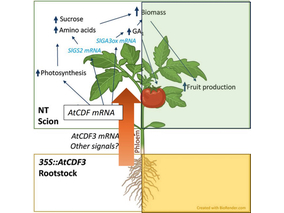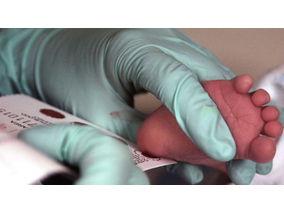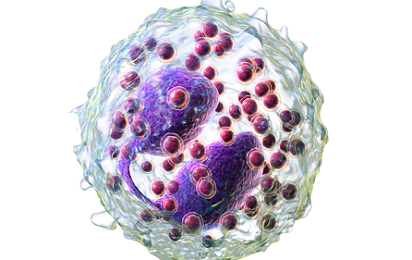A new treatment for bladder carcinoma is being developed by the JRC and Munich’s Technical University hospital Klinikum rechts der Isar. Recently, the first in-human tests have been conducted showing positive results.
Bladder cancer is the most common malignancy of the urinary tract. Carcinoma in situ (CIS) is an aggressive form of the tumour located at the surface of the bladder and represents about 10% of all cases. The standard therapy for CIS consists of surgical resection of the main tumour mass followed by intravesical immunotherapy.
Targeted alpha therapy uses an anti-epidermal growth factor receptor (EGFR) antibody that specifically binds to bladder carcinoma cells but not to healthy cells. The antibody is labelled with the short lived alpha emitter (an isotope of bismuth - 213Bi) and instilled in the bladder for 90 minutes. The high energy and very short range (less than 0.1 mm) of the emitted alpha radiation leads to a very effective and selective killing of the tumour cells while sparing surrounding healthy bladder tissue.
Within the last 12 months, six patients that had failed all standard treatments were treated with this new therapy. In three patients the tumour was eradicated following a single treatment, and the patients' bladders were preserved. No signs of toxicity or side effects were observed. In the other three cases, residual tumour was still detectable after the treatment. Increasing the applied dose or number of treatments is expected to further improve the therapeutic success rate. Patient recruitment for further tests is currently ongoing.
The preclinical development of this novel therapy started in 2007 in collaboration between the JRC and the Klinikum rechts der Isar and was awarded by the European Association of Nuclear Medicine with the Marie Curie Award in 2008
Photo: A scan during targeted alpha therapy shows distribution of the radiopharmaceutical in the bladder. No radioactivity is detected in other organs. © European Atomic Energy Community, 2015

El gen AtCDF3 promueve una mayor producción de az...

Un estudio con datos de los últimos 35 años, ind...

Un equipo de investigadores de la Universidad Juli...

En nuestro post hablamos sobre este interesante tipo de célula del si...

Palobiofarma S.L. se complace en anunciar la finalización del tratami...
Portal de biotecnología en España
¡Suscríbase a nuestro newsletter para estar al día con las últimas noticias y ofertas!
2013 © Biotech-Spain.com - Site Developments SL. Todos los derechos reservados. Terminos y Condiciones | Política de Privacidad
Articles
Directory
